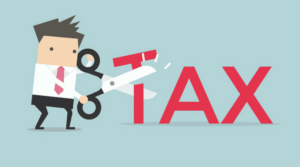Know These 8 Crucial Things Before Getting an Insurance
5 min readIt’s not something we like to think about, but accidents happen and when they do, insurance can be a lifesaver. Whether you’re just starting out in your own home or have been driving for years, it’s important to know the right questions to ask before purchasing insurance. In this blog post, we will discuss eight crucial things that you need to know before getting an insurance policy!
Make Sure You Have Info On Annuities
An annuity is an insurance policy that provides income for a person for a certain period of time. It is important to know the ins and outs of an annuity before getting one in order to make sure it is the right fit for you. Professionals recommend getting information found on The Annuity Expert and similar websites. This is because an annuity is a big decision and you want to make sure you are getting the best possible deal.
Furthermore, it is important to know about the different types of annuities before making a purchase. There are immediate annuities and deferred annuities. Immediate annuities provide income starting immediately after the purchase while deferred annuities allow the buyer to put off income until a later date.
There are also variable annuities and fixed annuities. Variable annuities have an investment component that can go up or down in value, while fixed annuities provide a guaranteed rate of return. It is important to know about these different types of annuities so that you can make the best decision for your needs.
Know Your Current Financial Situation
You need to have a clear idea of your financial situation before you start shopping for insurance. This means knowing your net worth, your monthly expenses, and your long-term financial goals. Only then will you be able to determine how much coverage you need and what kind of policy is right for you.
If you’re not sure where to start, sit down with a financial planner to get an overview of your finances. They can help you figure out what kind of insurance you need and how much it will cost.
How Much Coverage Do You Need
Most people don’t know how much insurance they actually need. You should start by assessing your risks and then purchase a policy that covers those risks. For example, if you’re a homeowner, you’ll need to purchase homeowners insurance. If you have a car, you’ll need to get auto insurance. etc. etc.
You should also make sure that you’re not over-insured. This can happen if you purchase a policy with too much coverage. For example, if you have a $100,000 life insurance policy when you only earn $50,000 per year, you’re over-insured.
It’s also important to review your coverage periodically and make changes as your needs change. For example, if you get married or have a child, you’ll need to increase your life insurance coverage.
Choose A Type Of Life Insurance Policy
The two main types of life insurance policies are term life insurance and whole life insurance. While whole life insurance is permanent and covers you for the rest of your life, term life insurance only protects you for a predetermined amount of time.
If you’re young and healthy, you may be able to get away with a term life insurance policy. However, if you have dependents or want coverage for your entire life, whole life insurance may be a better option.
Another important consideration is the death benefit. This is the amount of money that will be paid out to your beneficiaries in the event of your death. Make sure to choose a death benefit that is sufficient to meet your family’s needs.

Understand What Affects Your Rates
There are a few key things that affect how much you’ll pay for insurance. Things like your age, gender, and driving record can all impact your rates. Make sure you understand what factors will affect your rates before shopping for insurance.
Another important factor is the type of car you drive. Insurance companies use something called an “insurance rating” to determine how much your car will cost to insure. Cars with higher insurance ratings will cost more to insure than cars with lower insurance ratings. If you’re not sure what your car’s insurance rating is, you can check with your local Department of Motor Vehicles or look it up online.
Finally, where you live also affects your insurance rates. If you live in an area with a high crime rate, you’ll likely pay more for insurance than someone who lives in a safer area. Understanding these factors can help you get an idea of how much you’ll pay for insurance before you start shopping around. Keep them in mind when comparing rates from different insurers.
Don’t Focus On Premiums
One of the most important things to consider when buying insurance is not to focus solely on the premium. The premium is the amount you pay for your insurance policy, but it’s not the only thing you should be thinking about.
You also need to consider things like deductibles, coverage limits, and what kind of coverage you actually need. Otherwise, you could end up with an insurance policy that doesn’t cover you when you need it the most.
Prepare For A Lot Of Questions When Applying
When you’re ready to start shopping for insurance, be prepared for a lot of questions. The insurance company will want to know about your health history, your family’s health history, your lifestyle, any medications you’re taking, and more.
They’ll also want to know about your finances, including your income, debts, and assets. Be prepared to answer these questions truthfully and thoroughly; if you don’t, your policy could be canceled or you could be denied coverage for a claim.
Lock In Your Temporary Coverage
Most temporary health plans will allow you to lock in your rates for a set period of time, usually one to three years. This means that your premiums will not increase during that time frame, no matter how much your health care needs change.
This can give you some peace of mind and help you budget for your health care costs. Just be sure to read the fine print carefully, as some plans may have other conditions that could result in a rate hike.
In conclusion, there are a few important things to keep in mind when shopping for insurance. Make sure you understand what type of coverage you need, what factors will affect your rates, and don’t focus solely on the premium. Also, be prepared to answer a lot of questions when you apply, and be prepared to answer a lot of questions when applying for a policy. And finally, if you have a temporary health plan, see if you can lock in your rates for a set period of time. Doing these things will help you get the best possible insurance policy for your needs.






